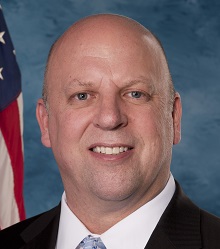By Bob Allen
A group of citizens who sued their county about public notice for plans to build a mosque in their community sent an appeal overnight to the U.S. Supreme Court, the Daily News Journal in Murfreesboro, Tenn., reported Jan. 30.
Joe Brandon, the plaintiffs’ attorney, said he expected the case involving the Islamic Center of Murfreesboro to be filed with the nation’s high court by today.
The appeal challenges a May 2013 ruling by the Tennessee Court of Appeals in Nashville that the Rutherford County planning commission acted properly under Tennessee’s Open Meetings Act prior to approving May 24, 2010, plans for a megachurch-like mosque campus to replace outgrown facilities in which the community’s Muslim residents had been meeting for worship for about 30 years.
It also asks the high court to test boundaries of the Religious Land Use And Institutionalized Persons Act, a law passed by Congress in 2000 that protects the religious exercise of persons confined to prison and bans the government from regulating land use in “a manner that imposes a substantial burden on the religious exercise” of a person or congregation without a “compelling governmental interest” that is furthered by “the least restrictive means.”
While the law applies to “religious exercise,” Brandon argues that non-religious issues like an ICM board member who posted approving photos of members of Hamas designated as terrorists by the U.S. Treasury Department in 2003 raise national security issues that warrant heightened scrutiny.
“RLUIPA is limited to site activities in furtherance of a ‘religious exercise’ and does not extend to ‘non-religious’ uses that would include affiliations, support or promotion of Muslim Brotherhood, Sharia practices in violation of law and/or Jihad leading to terrorism,” the petition for hearing argues.
 Last week U.S. Rep. Scott DesJarlais (R-Tenn.) took to Facebook to tell constituents that he had concerns about the role the Tennessee Religious Freedom Act, passed by the state General Assembly in 2009, may have played in the mosque recently gaining approval to have a cemetery.
Last week U.S. Rep. Scott DesJarlais (R-Tenn.) took to Facebook to tell constituents that he had concerns about the role the Tennessee Religious Freedom Act, passed by the state General Assembly in 2009, may have played in the mosque recently gaining approval to have a cemetery.
“There is a difference between legislation that would protect our religious freedoms and legislation that would allow for the circumvention of laws that other organizations comply with on a daily basis,” DesJarlais said.
“We have a cemetery,” Imam Ossama Bahloul said after the 3-2 vote by the Rutherford County Board of Zoning Appeals in comments quoted by the Daily News Journal.
“Now we can die,” ICM board chairman and founder Essam Fathy quipped following the public hearing that lasted more than two hours.
Previous story:
